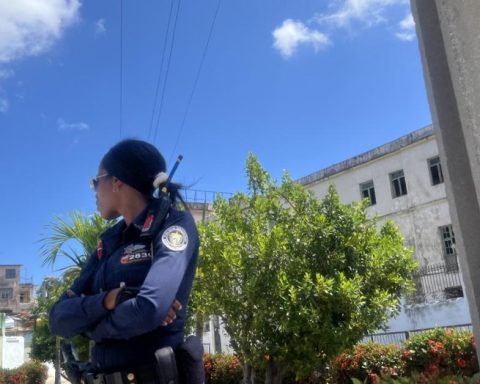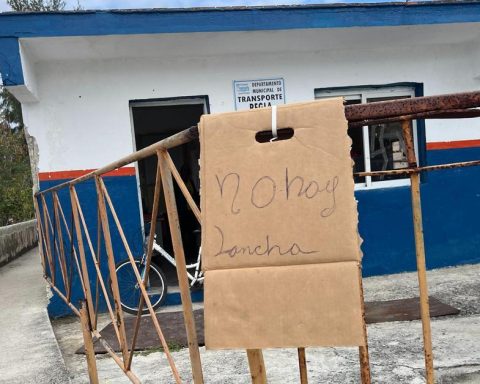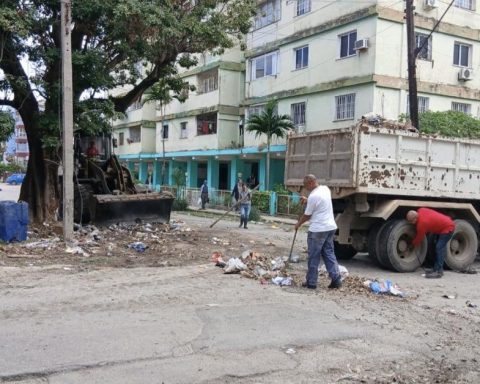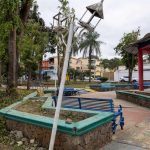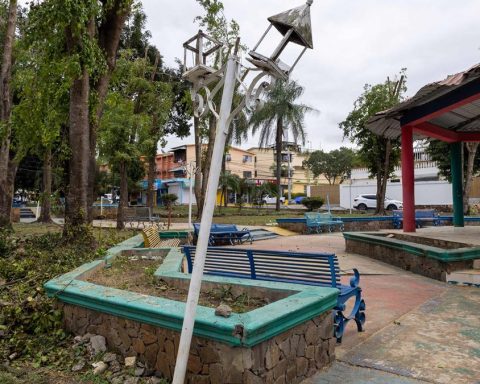The Felton thermoelectric plant, located in Mayarí (Holguín), has once again become a factor of tension for the Cuban government. This Thursday, a fault in the boiler of unit 1 caused its exit from the National Electric System, while unit 2 remains disabled due to the large fire suffered in early July.
The energy colossus remains unusable again, with the consequent balance of scheduled blackouts, without the officials who came to inspect the Felton plant agreeing on the date of a possible solution.
This Friday, the ninety-year-old Commander Ramiro Valdés and the Minister of Energy and Mines, Liván Arronte, together with the local governors, went to the plant to “verify the causes of the failure in unit number 1” and learn “the projections to put unit 2 in operation”, according to it states the provincial newspaper Now!
Valdés, who refuses to acknowledge the critical state of the plant, recommended “convening the best specialists in the country, mainly the infrastructure builders, and having them full-time in that role.”
“The nation invests one million dollars every three days in fuel to supply the generator sets that work before the output of the thermoelectric plant”
He revealed the government’s annoyance with the delay in repairs and the new incidents, which not only affect the population but also the administrative capacities of the State: “The nation invests one million dollars every three days in fuel to supply the generator sets that They work in front of the exit of the thermoelectric plant,” he explained.
However, the head of Energy and Mines does not share Ramiro Valdés’ urgency. Arronte assures that, since the fire in unit 2, “all the necessary companies” have been projecting repair times. So “we should not rush to give a completion time.”
The minister admitted that, with regard to the unit destroyed by the fire, “practically the entire boiler has to be dismantled, it is work that we have never done”. Adding to the difficulty of the repairs is the slow process of achieving the necessary “safety conditions”, since “the boiler was left in a state of risk” that could lead to collapse.
According to Arronte, Felton already has 22 years of operation in its current state, which requires “a study of the residual life” of its machines. He added that numerous calculations and analyzes are missing, in addition to a contact with the manufacturer of the boiler, to consider the total functionality of the thermoelectric plant.
Numerous calculations and analyzes are missing, and a contact with the manufacturer of the boiler, to consider the total functionality of the thermoelectric
Both Valdés and Arronte avoided detailing the recent failure of unit 1. However, the technical director of the thermoelectric plant, Euclides Rodríguez Mejías, explained to the local official press that “a leak occurred near the upper thermal chamber, which is in the cooling process”, although, according to the operator, the causes of the breakage are not yet known.
“We predict that, in the hours of this Friday night or early Saturday, it will be possible to access that area, because it is a very hot area, with little air circulation, so we have to wait for it to cool down to make a diagnosis and then start the pertinent works”, affirmed Rodríguez Mejías.
The Felton workers hope that unit 1 will start operating this Sunday, while the dismantling of the boiler will begin on Monday, a “task that does not allow errors”, due to the “damage that this gigantic structure already has”.
Slowness and precarious work characterize the process of repairing Cuban thermoelectric plants, which aggravates the balance of blackouts that the island’s population already suffers. In the face of the crisis, local governments execute new programs to cut off electricity.
Slowness and precarious work characterize the process of repairing Cuban thermoelectric plants, which aggravates the balance of blackouts
The Governor of Havana, Reinaldo García Zapata, reported that new four-hour power outages are scheduled from 10:00 am to 2:00 pm every three days. The cuts will be made to “save fuel” and thus guarantee “less blackouts in the rest of the provinces, where during these months the population has assumed that load, as a consequence of the generation deficit and fuel shortage, exacerbated by the intensified blockade ” Garcia said.
There will be no blackouts, according to the official, in the circuits linked to continuous production, water pumping and Public Health. García added that in state work centers “the waste” of electricity is evident, which has led to taking disciplinary measures. He also admitted that these measures will not be enough if they are not linked to a pattern of economic development that the country does not yet have.
Breakdowns, lack of parts, aging machines and historically clumsy management of the energy sector heat up the summer in Cuba even more. The nightly protests, increasingly frequent, are the only means of channeling the desperation of citizens, also depressed by the lack of food and the growing police repression.
________________________
Collaborate with our work:
The team of 14ymedio is committed to doing serious journalism that reflects the reality of deep Cuba. Thank you for joining us on this long road. We invite you to continue supporting us, but this time becoming a member of our journal. Together we can continue transforming journalism in Cuba.


